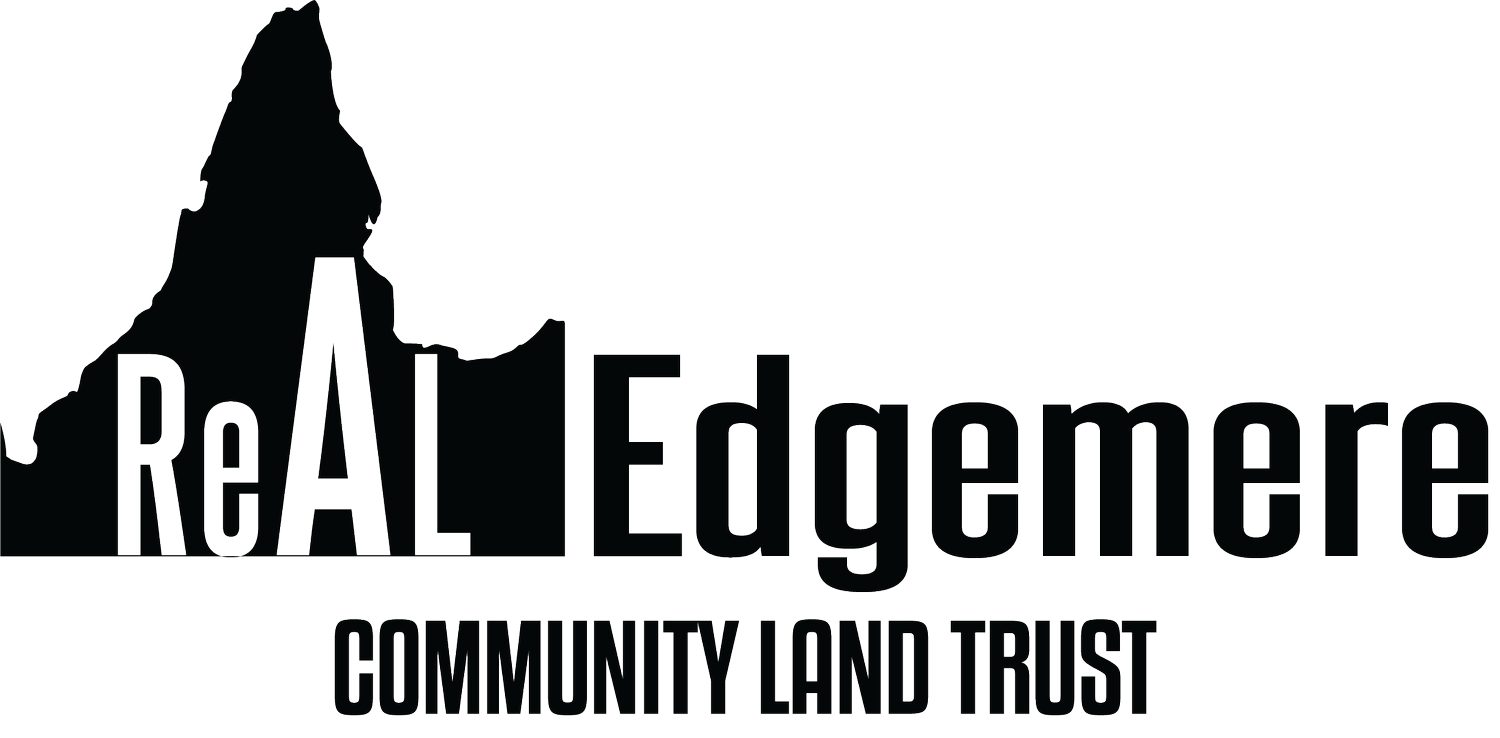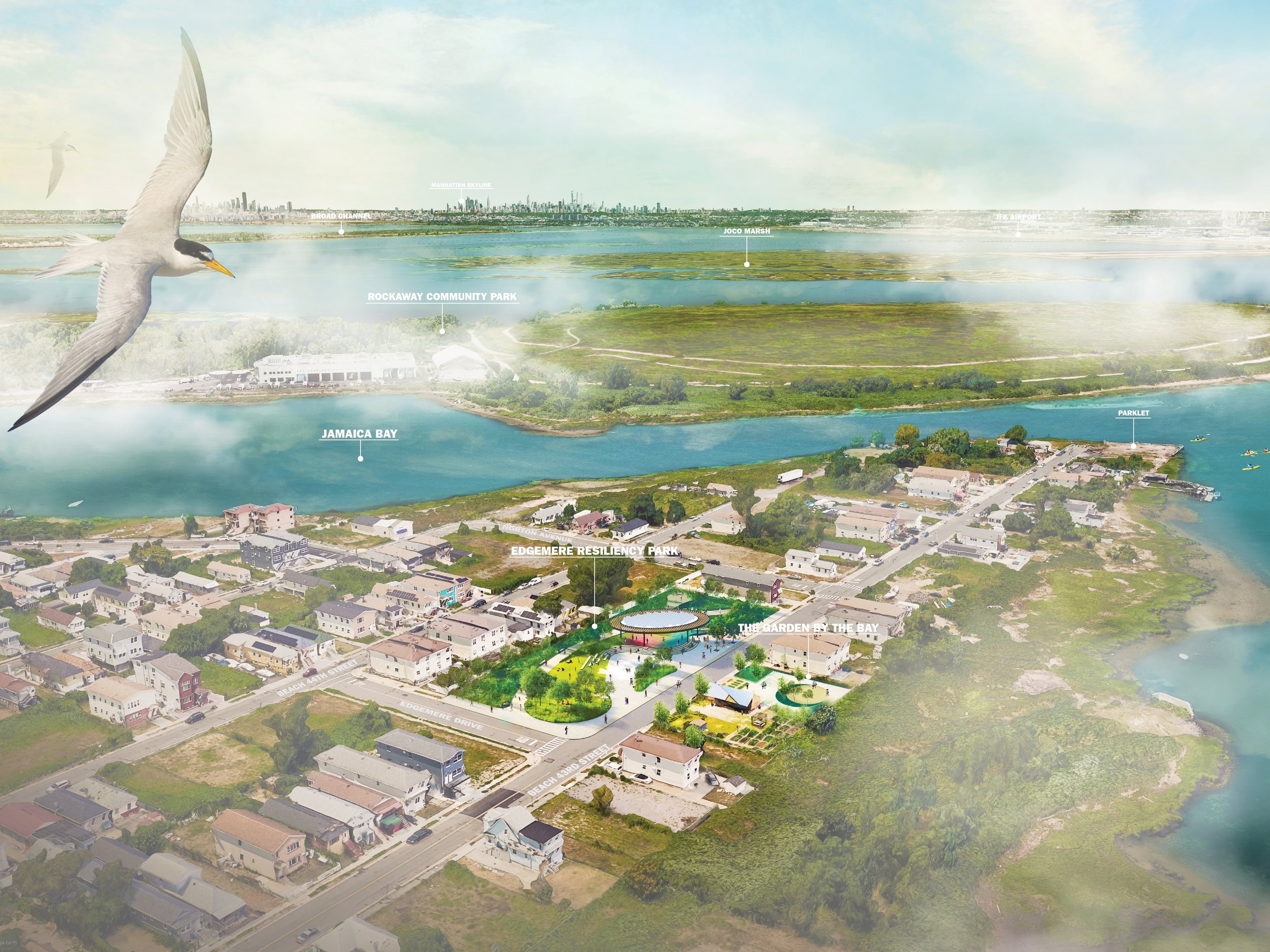2024 Edgemere Resiliency Park Proposal
Charette Event (4/27/24)
In late Spring 2024, a group of Edgemere residents worked collaboratively with a technical assistance team during a charrette workshop to develop a preliminary design strategy for the Edgemere Resiliency Park proposal. Three main concepts had emerged from resident input provided during and after the March 16 Site Visit event (see below): the “Market Lawn, the “Weaving Gardens," and the “Central Canopy." These design options were crafted to incorporate both community desires for public space and technical requirements for managing environmental challenges like flooding and extreme heat.
The charrette participants focused heavily on ensuring the designs would support both community programming and climate resilience. Through this process, they developed features like flexible spaces under shade, interactive water elements, native plantings, and stormwater management systems. The engagement process helped shape a final design that was submitted to EPA’s Community Change Grant Program.
Site Visit Event (3/16/24)
In the Spring of 2024, The ReAL Edgemere Community Land Trust, the Garden By the Bay and a group of community members began to work with a technical assistance team to gather input and understand resident sentiment regarding a proposed park project at the corner of Edgemere Drive and Beach 43rd Street. A first meeting, held on March 16th, focused on neighborhood assets in Edgemere and persistent issues related to flooding and sea level rise.
During these community gatherings, residents provided feedback that helped shape the design process. Some sentiments expressed included desires for relaxing spaces, flexibility to hold events (but not exclusively or frequently), the need to manage stormwater, and access to nature. This input became an integral part of developing a design for the Edgemere Resiliency Park proposal and ensured it would meet community needs while addressing environmental challenges.
Grassroots Planning During the COVID-19 Pandemic (2020-2022)
Columbia's Graduate School of Architecture Planning and Preservation and the Rockaway Initiative for Sustainability and Equity (RISE) conducted design studies and community engagement efforts focused on vacant lots in Edgemere that the city designated for open space use. Many Edgemere community members participated in these efforts, but the COVID-19 pandemic constrained opportunities for comprehensive multi-pronged community participation.
Edgemere Rezoning Plan (2022)
In 2022, the City of New York implemented comprehensive land use changes in Edgemere, guided by the Resilient Edgemere community planning process. These changes significantly restricted development in areas adjacent to Jamaica Bay. In these areas, the city has mandated that publicly-owned parcels be restricted exclusively to open space uses.
The city envisioned these preserved open spaces serving multiple functions: storm surge mitigation, stormwater management through green infrastructure, solar farms, community-focused agriculture, and passive recreation that would form part of a broader coastal protection system.
Resilient Edgemere Planning Process (2015-2017)
In 2015, The New York City Department of Housing Preservation and Development (HPD) launched the Resilient Edgemere Community Planning Initiative. Working closely with community members and local organizations, HPD facilitated multiple public workshops to define goals, priorities, and guiding principles for the neighborhood's future. The initial workshops, held in October and December 2015, helped establish core principles focused on maintaining the community's close-knit character, prioritizing opportunities for existing residents, and rebuilding Sandy-damaged areas.
Building on this foundation, HPD held subsequent workshops in April 2016 where residents shaped strategies around protecting the neighborhood from flooding, creating resilient housing while maintaining low density, improving streets and transit, and increasing neighborhood amenities. Later engagement in 2016-2017 focused on refining these strategies into concrete, implementable projects.






